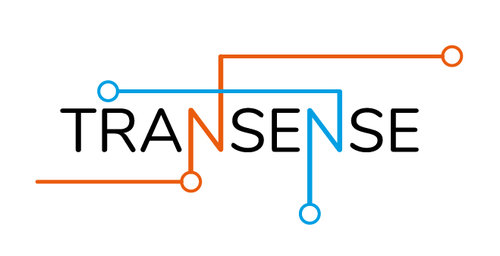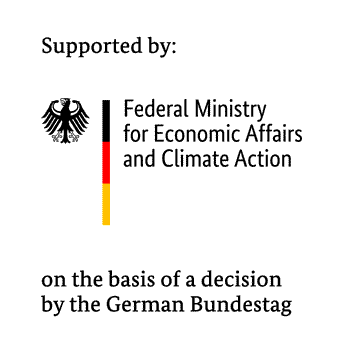TRANSENSE Transfer learning for AI business model innovations in digital, transparent distribution grids
Motivation
In contrast to transmission grids, distribution grids are not completely permeated with sensor technology. This is primarily due to historical reasons, because in the original mode of operation of the powergrid, the purely mathematical design was sufficient. With the expansion of renewable energies and their connection to the distribution grids, more grid transparency is necessary in order to continue to guarantee stable grid operation. Installing more sensor technology into the grids is possible but not economical. An intelligent solution approach to create grid transparency even with the limited observabilitiy of distribution grids is urgently needed. Therefore, the grid state is estimated on the basis of the available measurement data using a state estimation. While this has been used successfully in the transmission grid for a long time, transferring state estimation technologies to the distribution grid is difficult to impossible.
Goal
The innovative approach of TRANSENSE extends the classical state estimation using AI technologies to neural state estimation. Here, artitificial neural networks are used, which have already proven to be faster in the calculation than the iterative solution of the load flow calculation under the conditions in the distribution grid. The missing transferability of a neural state estimation is addressed in TRANSENSE by an integrated transfer learning approach that extends it to transitive neural state estimation. A simulation-as-a-service training infrastructure allows a close coupling of simulation and training, i.e., the training algorithm monitors the statistical properties of the training data at runtime and derives requirements for further training data, which are then generated by the simulation framework.
The results are evaluated in an offline test environment close to the control system with realistic models and examined in a multi-stage evaluation procedure for practical suitability. After training on a precisely determined, simulated distribution grid, the trained model is first transferred to a sub-determined, simulated distribution grid, and, then, to a sub-determined, real and known distribution grid. To ensure rapid practical application, the project is accompanied by an analysis of possible business model innovations in distribution grids with high network transparency.
OFFIS is responsible not only for the project management, but als for the transfer of the transfer learning methodology to the state estimation for distribution grids and the methodical development of the neural state estimation to transitive neural state estimation. Furthermore, OFFIS develops the integration of the training algorithm for transitive neural state estimation into the interface of the simulation-as-a-service training infrastructure.
Internal Leader
Scientific Director
Balduin, Stephan and Veith, Eric M. S. P. and Berezin, Alexander and Lehnhoff, Sebastian and Oberließen, Thomas and Kittl, Chris and Hiry, Johannes and Rehtanz, Christian and Torres-Villareal, Giancarlo and Leksawat, Sasiphon and Kubis, Andreas and Frankenbach, Marc-Aurel; 2021 IEEE PES Innovative Smart Grid Technologies Europe (ISGT-Europe); 2021
Alexander Berezin, Stephan Balduin, Thomas Oberließen, Eric Veith, Sebastian Peter, and Sebastian Lehnhoff; International Journal of Electrical and Electronic Engineering & Telecommunications; 2022
Stephan Balduin, Alexander Berezin, Thomas Oberließen, Sebastian Peter; The 37th annual European Simulation and Modelling Conference; 2023
Aleksandr Berezin, Stephan Balduin, Eric MSP Veith, Thomas Oberließen, Sebastian Peter; ENERGY 2025, The Fifteenth International Conference on Smart Grids, Green Communications and IT Energy-aware Technologies; March / 2025
www.ie3.tu-dortmund.de/cms/de/Institut/index.html
www.psienergy.de
www.netzebw.de





